Project Name:
EAST Study
Funding Dates:
Status:
Completed
Principal Investigators:
Liviana Calzavara, PhD; Wangari Esther Tharao, Med
Description:
EAST was designed to address the lack of information on HIV in communities from countries where HIV is endemic, specifically those from East Africa (Ethiopia, Kenya, Somalia, Tanzania, and Uganda).The aim of the study was to examine HIV/AIDS issues and concerns in the context of general health issues and behaviour present in five East African communities. The survey covered an extensive range of HIV and health-related issues such as immigration and mobility, social support, attitudes and beliefs, screening and testing, health conditions, risk behaviour, and health care utilization.
Purpose and Objectives:
The main objective of the study was to conduct the first epidemiologic study of HIV-related knowledge, attitudes, and behaviour, and to determine HIV prevalence. Specific objectives included: 1) To assess knowledge and sources of information for HIV/AIDS, 2) To describe risk factors and behaviour related to HIV, 3) To measure the prevalence of health-related problems, including HIV infection, 4) To measure attitudes towards, and use of, health care services and health screening, 5) To characterize the relationships between attitudes, knowledge, and risk behaviour, and HIV infection, other health problems, and use of health-related services
Method:
A population-based, cross-sectional survey was employed to collect a wide range of health and HIV-related information. Interviews were conducted between November 2004 and December 2006. The study also included an optional saliva collection component to assess rates of HIV infection in the sample.
Population:
Participation in EAST was restricted to men and women who were 16 years of age or older, identified as being from one of the communities (Ethiopian, Kenyan, Somali, Tanzanian, and Ugandan), lived in the Greater Toronto Area (GTA), and were fluent in English. The target sample size was 500 participants (100 from each community).
Region:
GTA
Start and End Date:
2003 - 2008
Results:
Almost all participants agreed that HIV/AIDS is a sickness that attacks the immune system (95%, 434/455), there are medications that allow people with HIV to live longer (95%, 430/455), and there is no cure for HIV (87%, 397/454). Fewer Somalis agreed that there are medications that allow people to live longer (85% vs. Ethiopian 98%, Kenyan 96%, Tanzanian 95%, Ugandan 99%, p<0.0001). Overall, transmission knowledge was high, with an average score of 8.5 (median 9, range 3-10). People who reported having had sex had higher knowledge scores than those who had never had sex (8.4 vs. 7.8, p<0.05) .Almost all participants knew that HIV was transmitted through unprotected sex and sharing needles, although only 72% knew HIV could not be transmitted through the sharing of utensils and 67% knew it could not be transmitted through a mosquito bite. While 83% knew HIV can be transmitted during childbirth, only 49% knew that HIV could also be transmitted through breastfeeding. When asked where they would obtain information concerning general health issues, all but six participants reported they knew where to get information. For general health issues, the majority (85%, 378/446) would obtain information from a professional health or social services advisor (Table 27). Nearly two-thirds (61%, 274//446) would use the internet and other self-help sources, and over one-third (36%, 162/446) would consult someone they knew personally. When asked where they would obtain information concerning HIV/AIDS, all but eight participants reported they knew where to get information. Participants were read a list of health issues and asked to what extent they believed each was a problem (major, minor, or not a problem) in their own community in Toronto. ‘Lack of exercise’ was most cited (51%, 233/455) as a major problem by participants and ‘smoking’ closely followed with 44% (202/455) citing it as a major problem (see Figure 4 for more detail). Two-thirds (66%, 300/455) of the sample felt that HIV/AIDS was either a minor or major problem, with the majority (42%, 189/455) citing it as a major problem. Interestingly, a quarter of participants felt they did not know if HIV was a problem in their community in Toronto. Compared to other communities, fewer Somali participants felt that HIV was a problem in their community.
Project Indicators and Outcomes:
Funding Sources:
Ontario HIV Treatment Network (OHTN) and Public Health Agency of Canada (PHAC)

